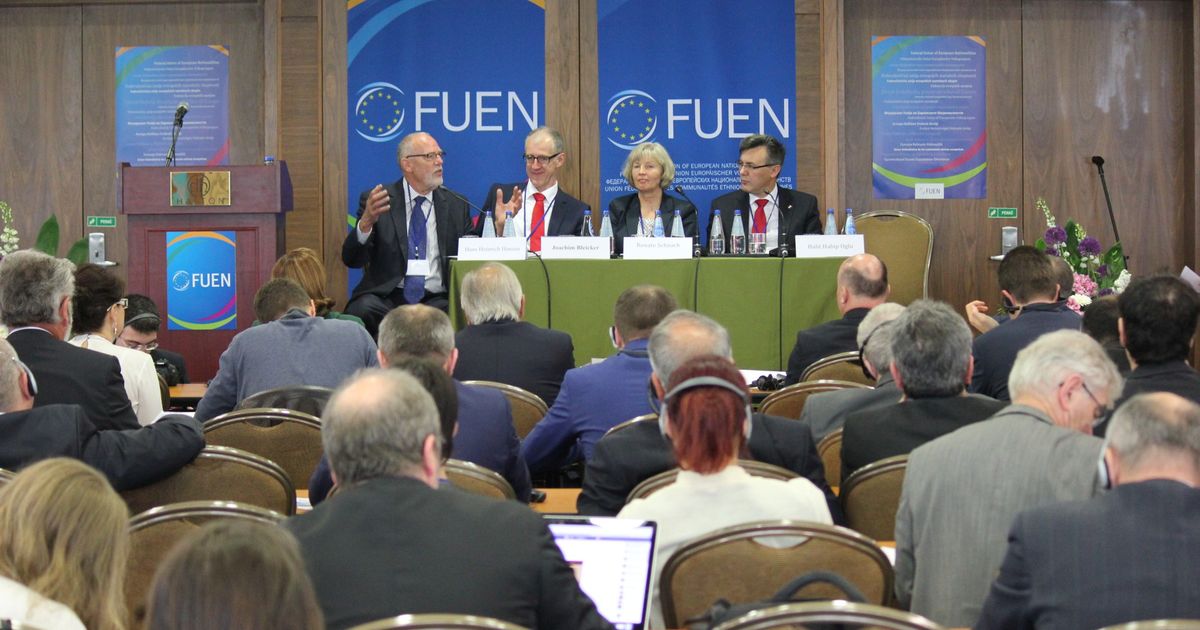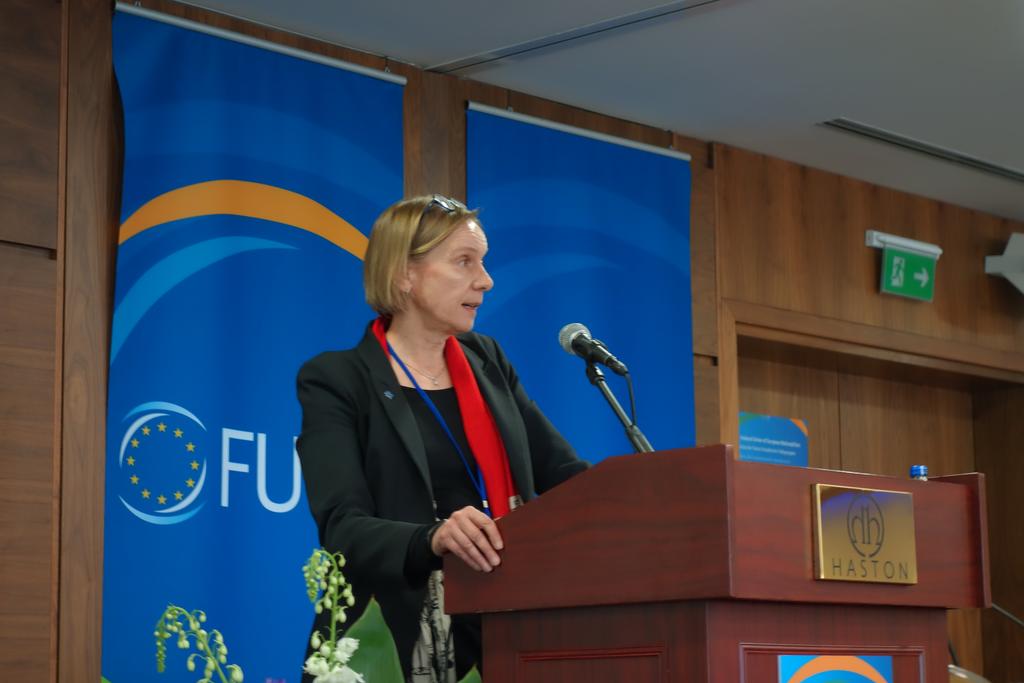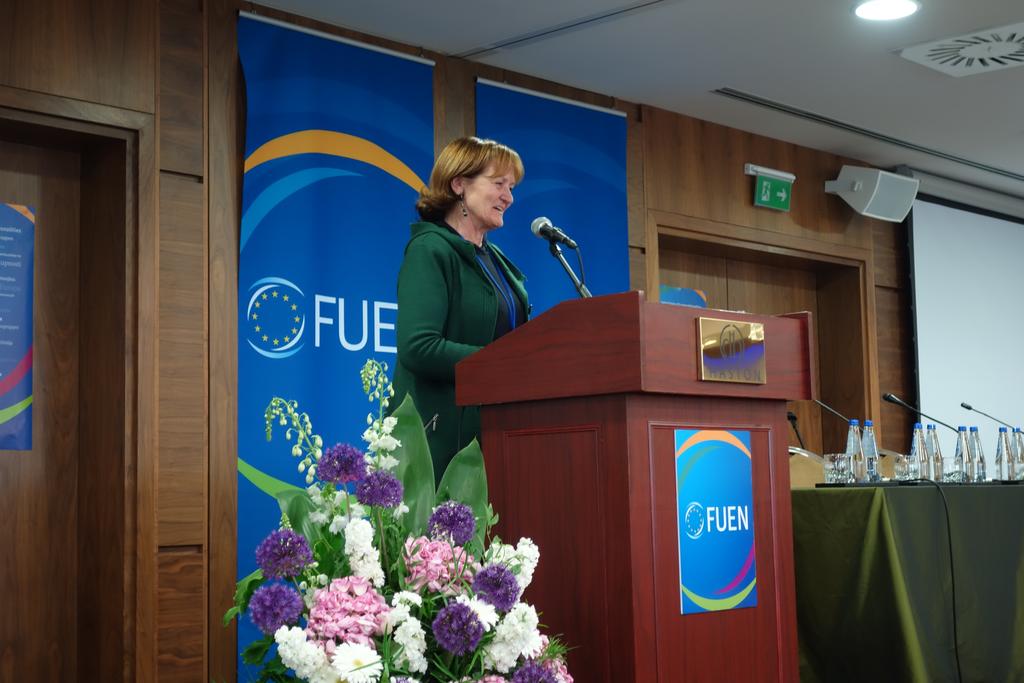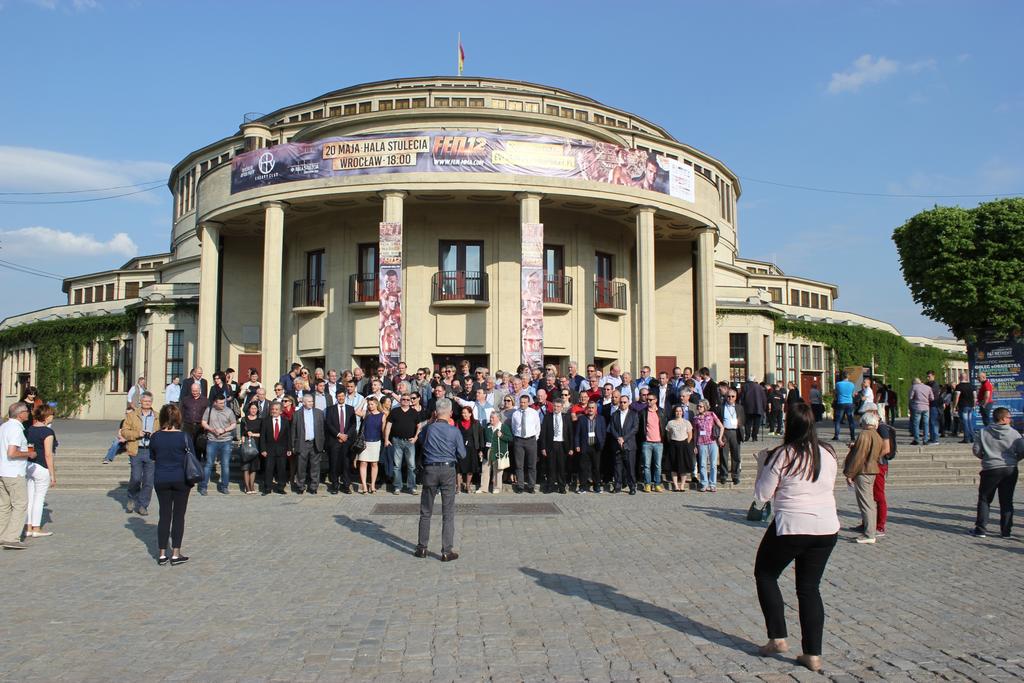
FUEN Congress 2016 – Small groups and major issues
21.05.2016Quo vadis Europa? That was the motto for another series of interesting presentations and discussions at the congress of the Federal Union of European nationalities in Wroclaw on 20 May 2016. After an introduction by FUEN Vice President Olga Martens, Dr Joachim Bleicker, Commissioner for Relations with EU Member States at the German Federal Foreign Office in Berlin pointed out in his speech that unfortunately, there are severe breaches of the human rights of minorities in parts of Europe. “We cannot accept this”, he insisted. “We are convinced that national minorities can bring societies within a country together.” In particular the positive experiences with the German-Danish friendship support the conviction that fair treatment makes it possible to solve problems.
Renate Schnack was able to validate this statement. As the Commissioner of the Prime Minister for National Minorities, the border region and Lower German in the Land of Schleswig-Holstein, she knows everything about Germans and Danes. She knows that stamina and political will is required to protect minorities. As other speakers during the day before, she emphasised the importance of education. Renate Schnack explained the overriding aim: “Living together in one society and be allowed to remain different.“ To that end, all forces have to be united. The minorities should relentlessly insist and push the European Commission. And the Commission must show commitment in order move forward on the difficult path to the greater aim.
At that stage the discussion became more tangible: after a description of the developments in minority protection since the 1990ies by Prof Grzegorz Janusz (“There still are some dangerous tendencies.”), a number of country reports were presented. Several representatives of different minorities in Europe explained their situation. Over and over again they spoke about hate speech, from which many minorities are suffering. In Croatia, even each football games is a platform for anti-Serb slogans, said Aleksander Milosevic, a Serb in Croatia. The situation in Ukraine was treated as a special subject, with contributions by Wladimir Leysle, Arkady Monastyrsky and Rovshan Tagiyev.
Another major topic of the day was the situation of the refugees. Anna-Carin Öst, the representatives of the United Nations High Commissioner for Refugees (UNHCR) in Poland, Martha Stocker, FUEN Vice President from South Tyrol, Loránt Vincze, FUEN-Vice President and member of the Hungarian minority in Romania and FUEN Vice President Dieter Paul Küssner from the Danish minority in Germany made an assessment of the current situation in Europe. The conclusion of the panel discussion was that Europe is to a certain extend dependent on migration.
In the afternoon the participants at the congress went for a city tour through Wroclaw. “The flower of Europe”, as the city guide suggested, at the times before three-quarters of the town was destroyed during the Second World War. The Centennial Hall, which remained almost without damage, was the first stop of the tour. The impressive building was constructed between 1911 and 1913 out of reinforced concrete. Since 2006 the hall is recognised as a UNESCO World Heritage Site. The building is used for fairs, sports events and cultural events. The participants moved further on to the old town, where bronze dwarfs can be found at each corner. The dwarfs of Wroclaw are a tourist attraction. The political opposition movement “orange alternative” expressed in the 1980ies their criticism about the Communist regime, with spontaneous actions, such as demonstration in dwarf costumes. The moment that one cast-iron dwarf was installed, was the beginning of something bigger. Up till today more than 300 dwarfs inhabit Wroclaw, which have a size of about 30 cm each. It is beautiful to see how something small can raise huge attention.



COMMUNIQUÉ DE PRESSE
- FUEN wishes you a peaceful Christmas season, restful days and a bright, hopeful start to the new year!
- FUEN calls on the EU to act over systematic ethnic-based land confiscations in Slovakia
- Women of Minorities conference in Budapest calls for structural change to ensure equal political participation of minority women
- FUEN President Olivia Schubert at UN Forum on Minority Issues in Geneva
- "Laboratory of Peace": 28th Seminar of Slavic Minorities held in European Capital of Culture Gorica/Gorizia
- Equality in Political Participation and Representation: Third “Women of Minorities” Conference to Be Held in Budapest
- FUEN Working Group on Education discusses challenges and future of minority schooling in Europe
- 28th Seminar of Slavic Minorities in Europe to take place in Gorica/Gorizia, Italy
- Olivia Schubert in her first interview as FUEN President
- FUEN Assembly of Delegates elects new leadership – Olivia Schubert becomes new President














